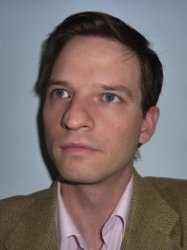Summary
Prof Guy-Bart Stan is Head of the Control Engineering Synthetic Biology group, Royal Academy of Engineering Chair in Emerging Technologies, Co-Director of the Imperial College Centre for Synthetic Biology and Deputy Director of the EPSRC-funded Centre for Doctoral Training in BioDesign Engineering.
Prof Stan is also the Lead PI on the UKRI-funded Engineering Biology Transition Award, "Artificial Intelligence for Engineering Biology" Consortium (AI-4-EB). The vision for AI-4-EB is to leverage and combine key enabling technologies in Artificial Intelligence (AI) and Engineering Biology (EB) to pioneer a new era of world-leading advances that accelerate learning and design of Engineered Biological Systems. Through the AI-4-EB Consortium, we are building a network of inter-connected and inter-disciplinary researchers to both develop and apply next-generation AI technologies to the design and optimisation of biological systems across scales. Overall, AI-4-EB provides the necessary step-change for the analysis of large and heterogeneous biological data sets, and for AI-based design and optimisation of biological systems with sufficient predictive power to accelerate Engineering Biology.
Complementary to the AI-4-EB Consortium described above, Prof Stan has also been leading (with Prof Baldwin) a strategic initiative at Imperial College (Imperial-X Life) to develop new AI/machine learning methods and pipelines that are adapted to the challenges of data-based design and optimisation of engineered living cells.
Guy-Bart’s research publications can be found at the tab above, or on Google Scholar.
His personal website with various additional information is available here.
Our group
The webpage of my group is available from this link: Control Engineering Synthetic Biology group
Research papers
Want to download our papers? This can be done from our research webpage.
Short Biography
Prof Guy-Bart Stan obtained his PhD in Applied Sciences (Nonlinear Dynamical Systems and Control) from the University of Liege, Belgium under the supervision of Rodolphe Sepulchre. His thesis dealt with the global analysis and synthesis of limit cycle oscillations in networks of interconnected nonlinear dynamical systems, and with the global synchronisation of oscillations in such networks. The obtained results are based upon a generalisation of dissipativity theory to the global asymptotic stability analysis of limit cycles, both in isolated and interconnected nonlinear dynamical systems. The proposed approach allows a generalisation of the feedback oscilation mechanisms observed in the Van der Pol and Fitzhugh-Nagumo oscillator to higher dimensional systems.
From July to September 2018, he was an invited Professor at the Department of BioSystems Sciences and Engineering at ETH Zurich (invited by Professors Mustafa Khammash and Martin Fussenegger). From August to September 2015, he was an invited Professor in the Department of Mechanical Engineering and the Center for Synthetic Biology at MIT (invited by Professors Domitilla del Vecchio and Ron Weiss). From July to September 2008, he was an invited visiting scientist at the Laboratory for Information and Decision Systems at MIT (invited by Professor Munther Dahleh). From June to August 2004, he was an invited visiting Ph.D. researcher at the "Laboratoire d'Automatique de Grenoble", GISPA-lab, INPG-ENSIEG, Grenoble, France (invited by Professor Carlos Canudas-de-Wit).
From January 2006 until December 2009, Dr Stan worked as a Research Associate in the Control Group of the University of Cambridge (U.K.) with support from EPSRC (EP/E02761X/1) (previously support from a European Commission FP6 Marie-Curie Intra-European Fellowship (EIF-FP6 025509 GASO)). From June to December 2005, he worked as Senior DSP Engineer at Philips Applied Technologies (now Philips Research), Leuven, Belgium. Until May 2005, he worked in the Nonlinear Systems and Control group at the Systems and Modeling department of the University of Liège with F.N.R.S. (Belgian National Fund for Scientific Research) support.
A more detailed C.V. can be downloaded from here.
Research interests
Dr Stan main research interests are in the areas of Synthetic and Systems Biology, Analysis and Design of Complex Biological Networks, and Nonlinear Systems Analysis and Control.
More details about these research topics and the related publications can be found on our current projects short descriptions and on my research webpage.
Selected Publications
Journal Articles
Oyarzún DA, Stan GB, 2012, Synthetic gene circuits for metabolic control: design tradeoffs and constraints, Journal of the Royal Society Interface, Vol:10
Dalchau N, Baek SJ, Briggs HM, et al., 2011, The circadian oscillator gene <i>GIGANTEA</i> mediates a long-term response of the <i>Arabidopsis thaliana</i> circadian clock to sucrose, Proceedings of the National Academy of Sciences of the United States of America, Vol:108, ISSN:0027-8424, Pages:5104-5109
Dalchau N, Hubbard KE, Robertson FC, et al., 2010, Correct biological timing in <i>Arabidopsis</i> requires multiple light-signaling pathways, Proceedings of the National Academy of Sciences of the United States of America, Vol:107, ISSN:0027-8424, Pages:13171-13176
Stan G-B, Belmudes F, Fonteneau R, et al., 2008, Modelling the influence of activation-induced apoptosis of CD4<SUP>+</SUP> and CD8<SUP>+</SUP> T-cells on the immune system response of a HIV-infected patient, IET Systems Biology, Vol:2, ISSN:1751-8849, Pages:94-102

